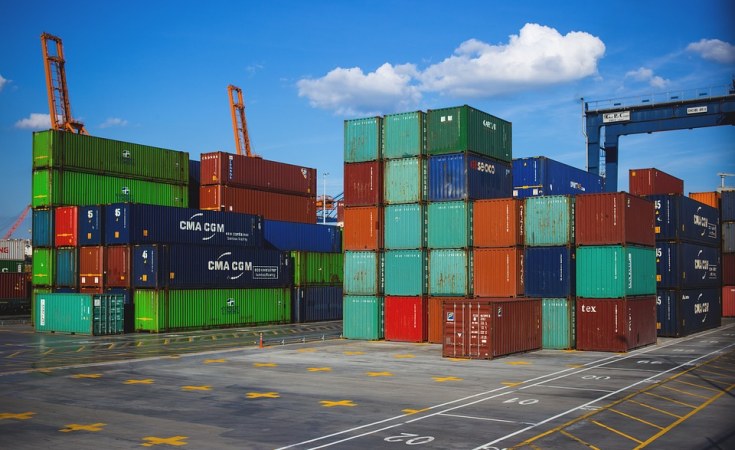Kenya Ports Authority (KPA) has agreed to scrap the container deposit of $3,000 (about shs12 million) per container at Mombasa port as a commitment to easing business for Uganda traders.
This was revealed by Capt. William K. Ruto Afni, the Managing Director KPA during a meeting with Ugandan Foreign Affairs Ministry led by Permanent Secretary, Vincent Bagiire in Mombasa.
Amb Richard Kabonero, the NCIPs coordinator at the Ministry of Foreign Affairs, Amb. Paul Mukumbya, the Consul General of Uganda Consulate in Mombasa, Moses Mpungu, the First Secretary at Uganda Consulate in Mombasa and Aggrey Dhamuzungu, the First Secretary at Foreign Affairs Ministry were all part of the meeting that also called for remove of all regional trade barriers.
Capt. Afni said the Uganda remains a key trade partner for Kenya as its exports and imports passing through Mombasa are increasing.
Almost 50 percent of the costs incurred by most Ugandan traders go into handling port and transport expenses and if these costs were mitigated, price levels would fall significantly.
Importers face a $40 daily charge, 15 days from the time their goods reach the country, besides the $30,00 deposit paid to the shipping line.
This is forfeited when the cargo is not cleared and collected in the specified time. Unfortunately, traders often have goods awaiting clearing and transportation for months.
Players say traders are often forced to make costly and sometimes futile trips to Nairobi and Mombasa to demand faster clearance of freight and delivery, as their cargo remains in the ports for weeks or even months.
Uganda accounts for 83.2 percent of transit cargo through the port of Mombasa, into the hinterland via the Northern Corridor, South Sudan taking up 9.9 per cent. DR Congo, Tanzania and Rwanda account for 7.2 per cent, 3.2 per cent and 2.4 per cent respectively.
During the Mombasa meeting, the Uganda delegation also called for the remove of Non-Tariff Barriers (NTBs), including the reduction on number of weigh bridges, roadblocks and time for cargo clearance of goods.
Bagiire said it is important for Member States to remain committed in developing regional transport infrastructure as it will promote regional integration and trade.
He said the cooperation and commitment will eliminate the remaining non-tariff barriers to trade thereby making the region competitive for business and investment.
The head of the Ugandan delegation said the improvement of infrastructure and facilities for seaports, inland ports and waterways, roads, rails and pipelines by the states will enable the region benefit in trade.
The Permanent Secretary also recalled the 2013 Summit Directives of the Partner States of NCIPs that agreed to among others, undertake infrastructure development projects in coordinated mechanisms within the Northern Corridor countries for the economic growth and development of the region.
He highlighted the strides and progress of European Union facilitated NCIPs such as the commencement and fast-tracking of construction and standardization of Standard Gauge Railway (SGR) network among the Partner States, One Network Area, cooperation in air services and power generation and the Single East Africa Tourism Visa.
He emphasized the commitment to revive the NCIPs with the planned convening of the NCIPs 15th Summit that had stalled due to economic and political challenges.
He underscored the need for collaboration with the NCTTCA that offers hands on experience and framework of implementing the NCIPs.
NCTTCA's Dr. Elias Leju indicated the Authority's readiness to facilitate the hosting of trans-boundary meetings on the construction of the roads of; Mpondwe-Bunia (Uganda/DRC), Moroto-Lora (Uganda/Kenya), Kaya-Yeyi (Uganda/South Sudan) and SGR (Uganda/South Sudan and Uganda/Kenya/Rwanda) among others.


